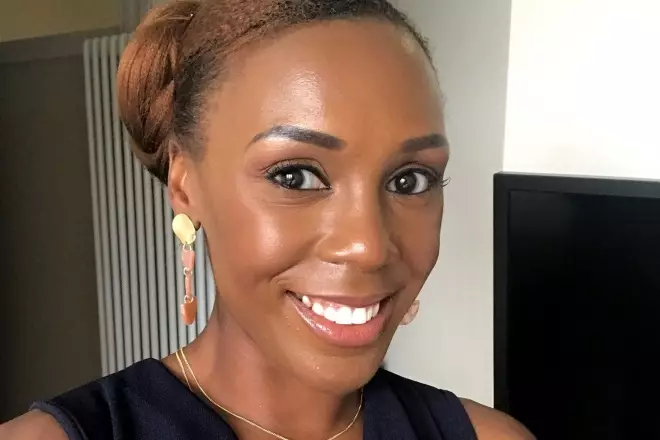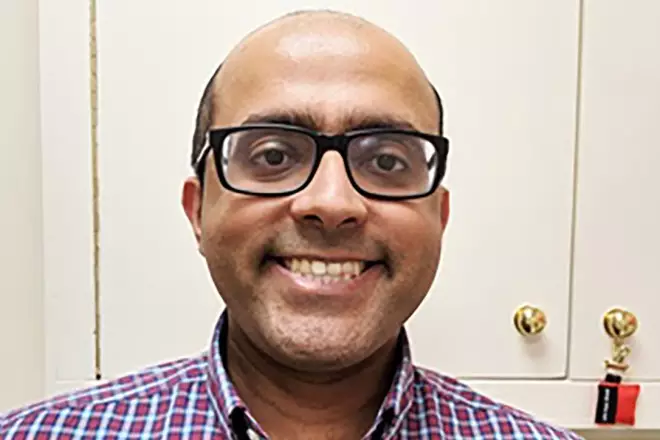
Shutterstock.com
The concept of a side hustle is a simple one — it is work that you can do on top of your day job that is flexible and can bring in money. This work may help you develop skills to take a different direction in your career. A side hustle is usually something that people are passionate about, but may not have the chance to do in their main job.
In addition to the extra income, it is also a way to explore an interest without having to give up the safety of your main employment. A side hustle can be a way to test the waters of something you are interested in but not completely sure about.
Pharmacists have a lot of skills that lend themselves well to side-hustle success, including business acumen, experience of dealing with people, and the ability to multi-task and organise.
The perfect side hustle will be unique to each individual: it is about identifying a skill set and an opportunity. It is important to bear in mind that any additional work, even if enjoyable, can take up a lot of time and energy. Be sure to consider the level of involvement needed before starting one.
Here are five practical steps to setting up your own side hustle.
1. Pick something you care about
If you are spending your precious free time on a side hustle, it needs to be something you are passionate about and enjoy doing, says Georgina Fihosy, who works full-time in the pharmaceutical industry for Novartis Pharmaceuticals as well as running Afrotouch Design, a greetings card business she set up in 2016 after realising she could not find culturally reflective cards in the shops.

Running a side hustle requires dedication and consistency, says Georgina Fihosy
Fihosy started out by showcasing Afrotouch Design on Etsy, and now has her own website as well as selling in independent retailers and, most recently, through Waterstones bookshops.
“I work full-time and spend another three to four hours a day running the business. This is my creative relief, and I love it so much because it is something that is mine and I’ve grown it like another child,” says Fihosy, who has three young children.
“You have to have a passion for it, and it has to be something you really enjoy; something you would potentially do for free. You have to be consistent and dedicate the time. You do have to make sure you’re disciplined.”
The business, she says, has grown at a pace she can control, and she still really enjoys it even with the extra pressures of working and home-schooling during lockdown. “I’ve always enjoyed science, but I wanted something other than that; something I could do creatively.”
Amit Dhand, an independent pharmacist based in Bradford and successful crime writer, agrees. It took a decade to get his first book deal, but his need to do something creative kept him going. He says that sitting down in the evening to lose himself in his writing never feels like a chore.
“It’s so important people explore their creative side; it’s so liberating and relaxing,” he adds. “Everyone has an academic and a creative side, and I get my best ideas when I’m doing something like checking a dosset box.”
2. Do your research
Don’t expect to just leap in without any knowledge of the area you hope to set up a side hustle in. You need to do some research about whether there is a market for people wanting your talent or expertise.
If you can spot a need in your local area, such as yoga or photography, it may be time to turn that hobby or passion into a business. Bear in mind this may require extra training or qualifications on your part initially, but the potential rewards could be very satisfying.
“I spent a lot of time speaking to friends and family,” says Fihosy. “And three to four months looking into different printers and card suppliers.”
The Greeting Card Association became an invaluable source of knowledge, and she always advises people thinking of setting up a side hustle to find an association or organisation that can help provide that key information.

Makinder Suri’s team have been fundamental to the success of World Travel Clinic
Pharmacists will already have a lot of business knowledge they can tap into, says online pharmacy owner and pharmacist, Makinder Suri; and they can use that when developing a side hustle. She set up World Travel Clinic, which operates in Nottingham and Windsor, to offer travel vaccination and medicines to those going abroad, after realising there was a big demand.
“You also need to have a good team,” she says. “The back-office stuff has got to be done well. We would like to expand further, but we have to make sure we have all the right infrastructure and training.”
3. Perfect your time management
It is likely that any side hustle will grow slowly: it is important to plan how you will get started, but also how your venture will develop should it take off. That plan needs to include how you will manage your time between your two roles.
Fihosy gets up at 5am to do some work on Afrotouch Design before doing another stint in the evening once her children have gone to bed.
Rotherham-based pharmacist Babir Malik started a light-hearted blog detailing the life of a community pharmacist under the name Mr Dispenser, which he then turned into a self-published book.
It was a lot to juggle at one point, he adds, with speaking engagements and book promotion events all over the country.
He now uses the skills he developed in his part-time teaching role at the University of Bradford.
“One of the things pharmacists are good at is time management, and that really helped me when I was juggling all these different roles,” he says.

Amit Dhand finds his work as a pharmacist sparks his creativity and helps his writing
Dhand, who has written five novels and has a TV adaptation in the works, juggles owning a pharmacy and spending time with his family by writing late in the evening. Writing helps balance the increasing stresses of running the pharmacy, he says.
4. Learn from others
It is important to seek advice from others more experienced than you, and you may need to do some formal training.
Ade Williams, an independent pharmacist in Bristol, has developed a role as a media expert alongside his work in his award-winning pharmacy.
It started with running campaigns in his pharmacy and, after appearing on BBC Radio Bristol, he was offered a regular slot doing reviews for The Bristol Cable. He has learnt a lot from the journalists and producers he has met along the way, as well as from doing some media training.
“I really enjoy my media stuff, and the friends that I have made at the BBC have been very gracious in teaching me how to do things properly and professionally,” he says.
Williams believes he can provide a unique perspective in his role as a media expert: “As a pharmacist, I see the whole spectrum of inequality, so I can bring understanding and insight without appearing condescending or political.”
One side hustle is not enough for Williams, who also works as a copy artist, commissioned and paid to reproduce artwork as part of an artist collective. It is important for pharmacists to do other things outside their day-to-day work, he says. “It allows you to step out of your bubble and broaden your views.”

Ade Williams believes an individual’s passion and interests should extend beyond pharmacy
Finding a mentor can also be a useful step. Some organisations offer mentor schemes, so check if there is anything similar in place in the field you plan to set up your side hustle in. Alternatively, mentorship can be fairly informal, and often works best if you approach someone you already know or have had some contact with for some guidance, rather than approach a stranger. You could start by following what they do, offering help and sharing their work on social media.
“I have lots of business mentors,” says Fihosy. “And not necessarily in creative industries, but they have helped me so much in learning how to run a business. You need somebody to bounce ideas off and give you some clarity from time to time.”
5. Keep your day job … for now
It can take a long time for a side hustle to make any money. Depending on what you are doing, it could mean some extra pocket money or a decent additional income — but it doesn’t happen overnight.

Time management is essential when juggling multiple roles, says Babir Malik
Don’t think you are necessarily going to make a lot of money, advises Malik. He says that, overall, he has probably made around £14,000, although much of that went back into promotion or was donated to the charity Pharmacist Support.
“You might not be successful at first, but if you enjoy it, keep going and learn from what you are doing,” he advises.
“I always tell people ‘don’t quit your job straight away, don’t think it’s going to blow up,’” says Fihosy. “You still need that regular source of income.”
Alongside this, it is important to manage your finances carefully, she adds. “I have self-funded everything, and I still self-fund. You really need to keep a handle on your cash flow.”

